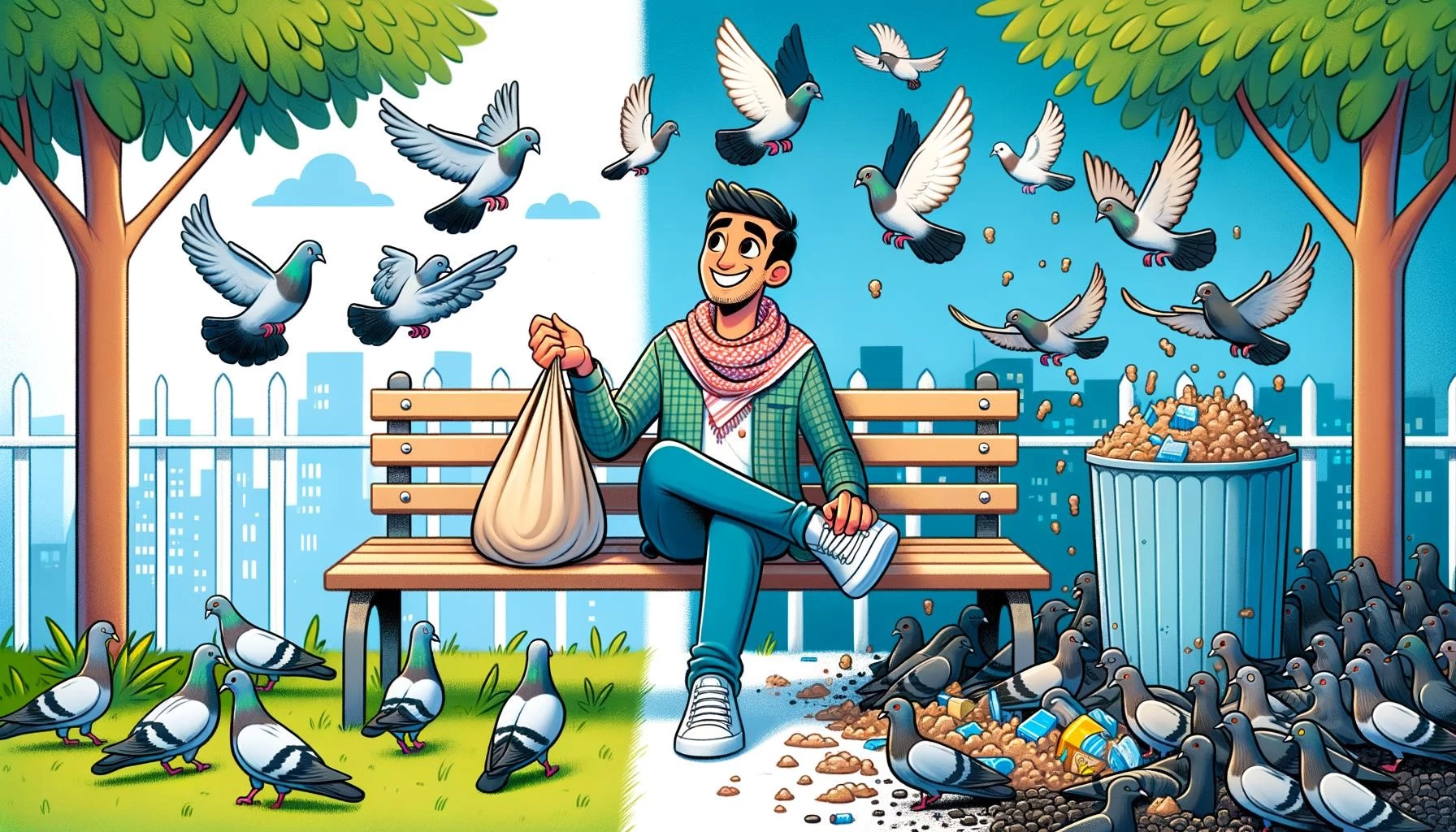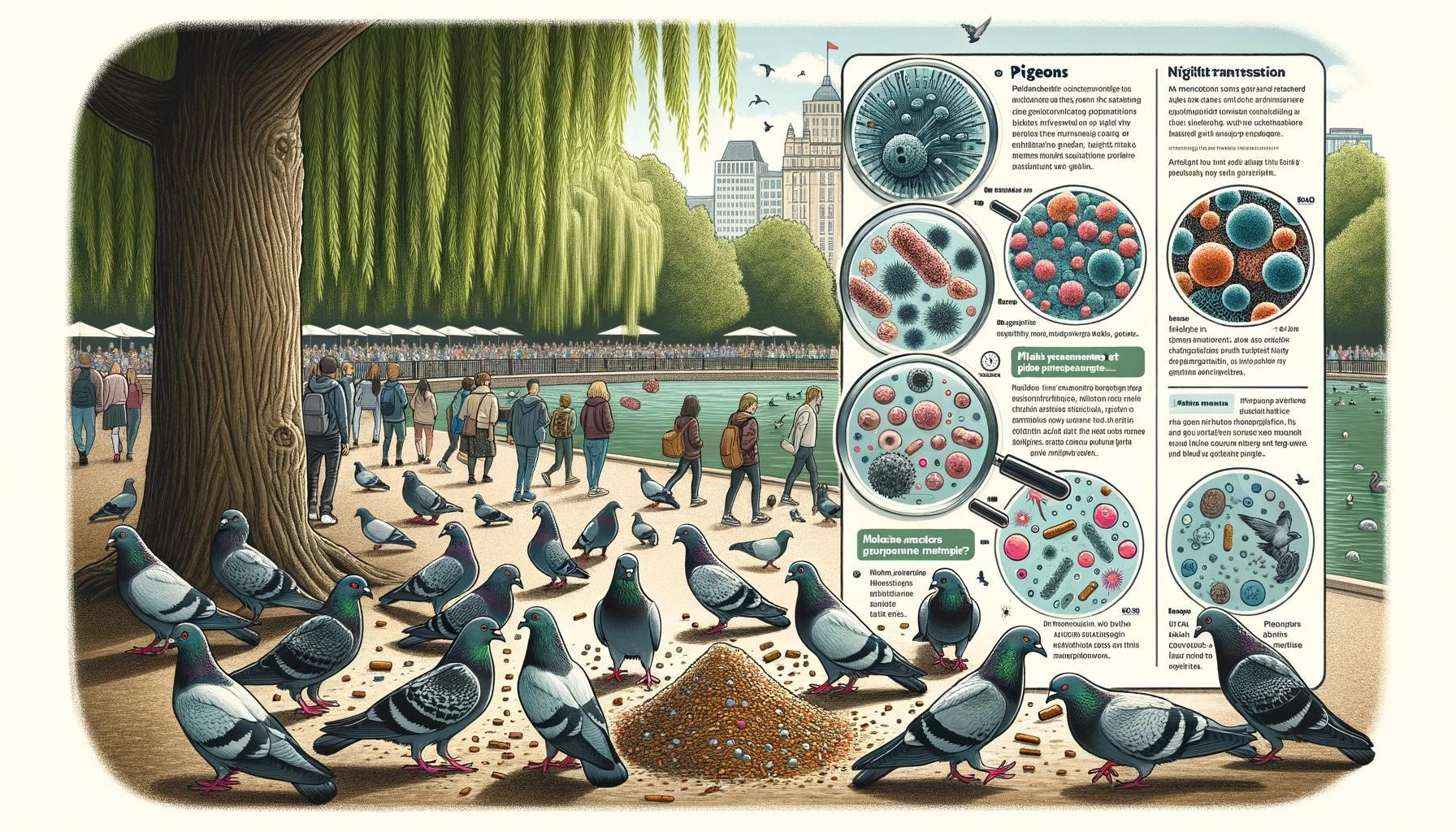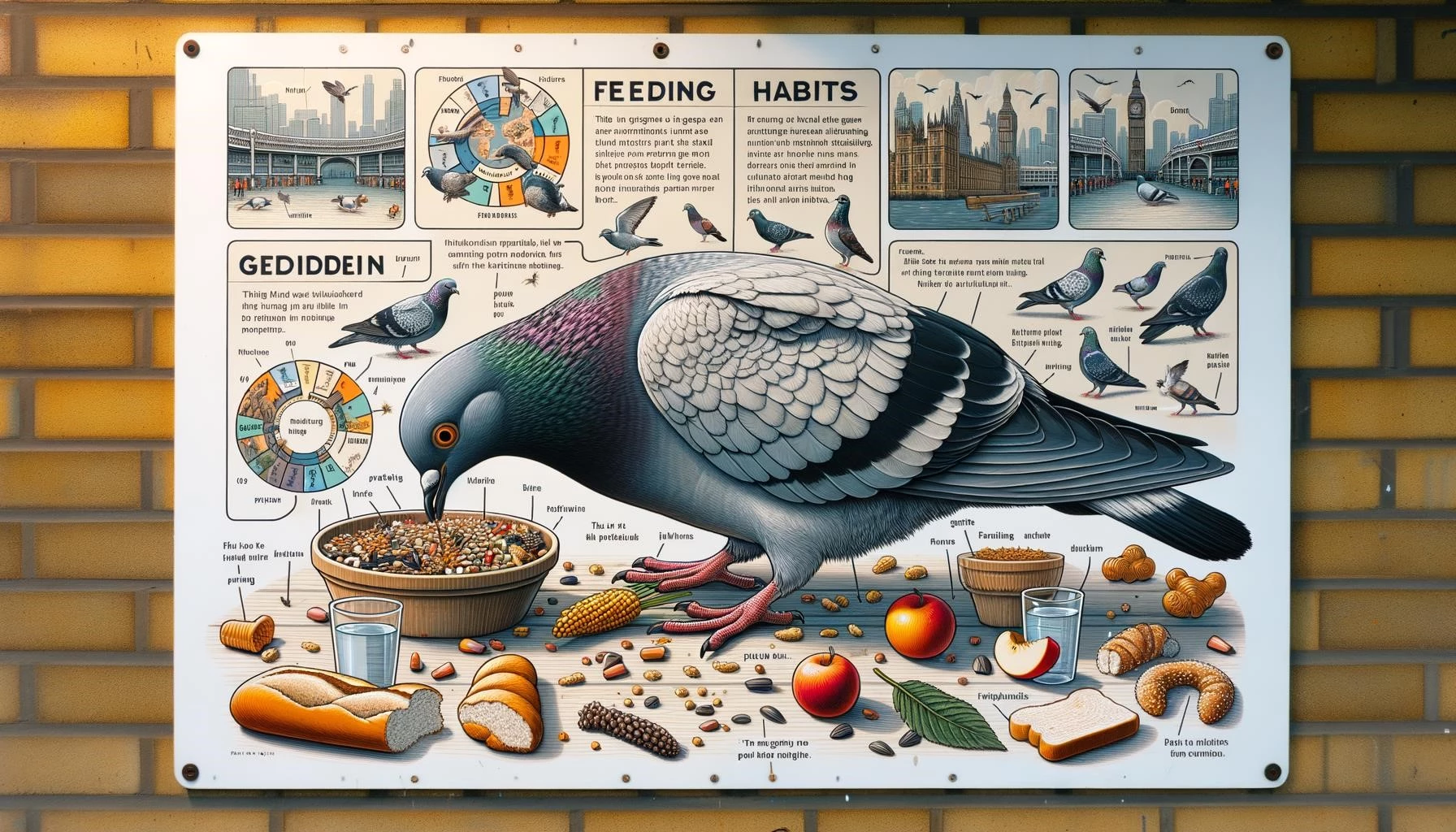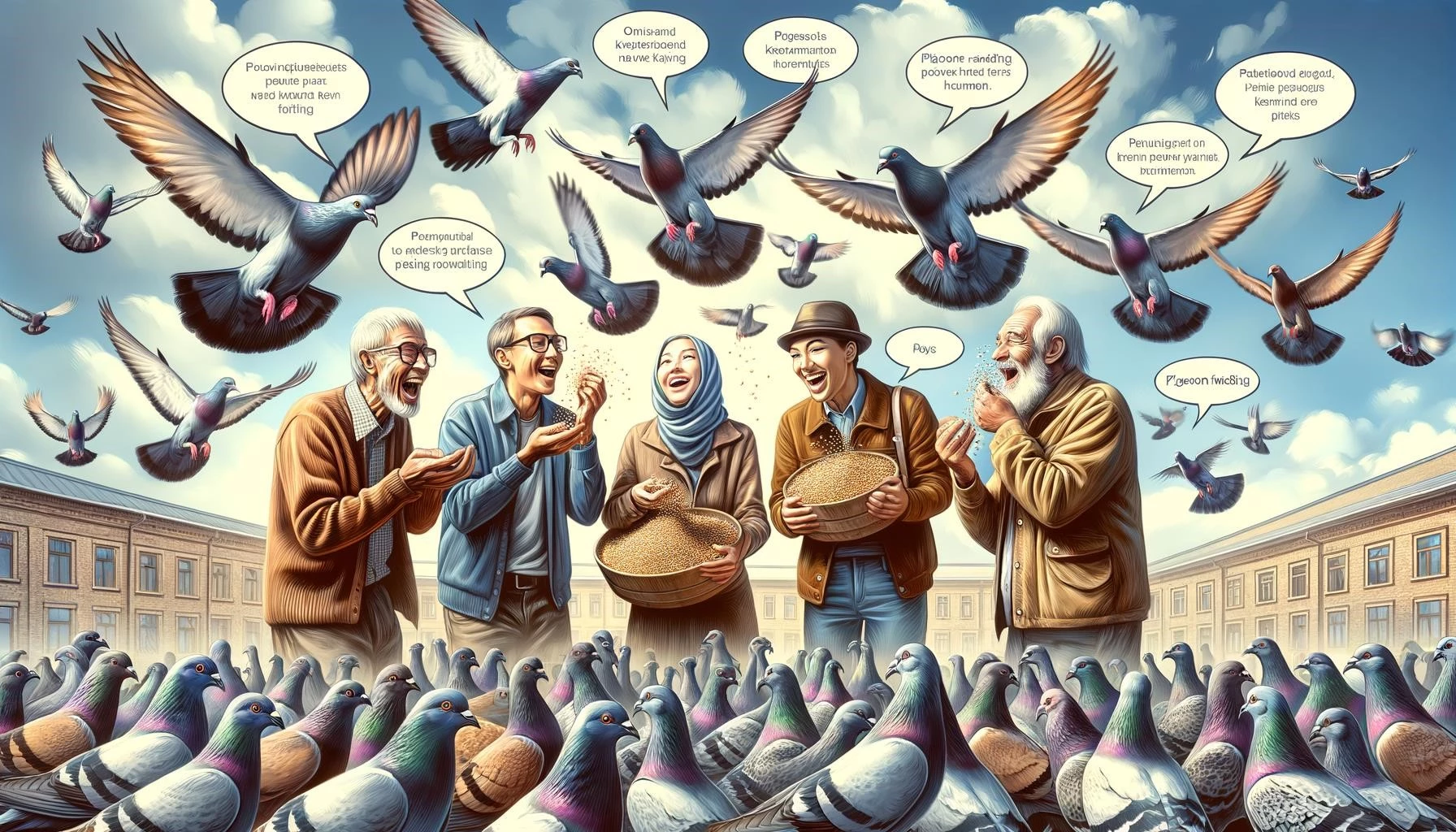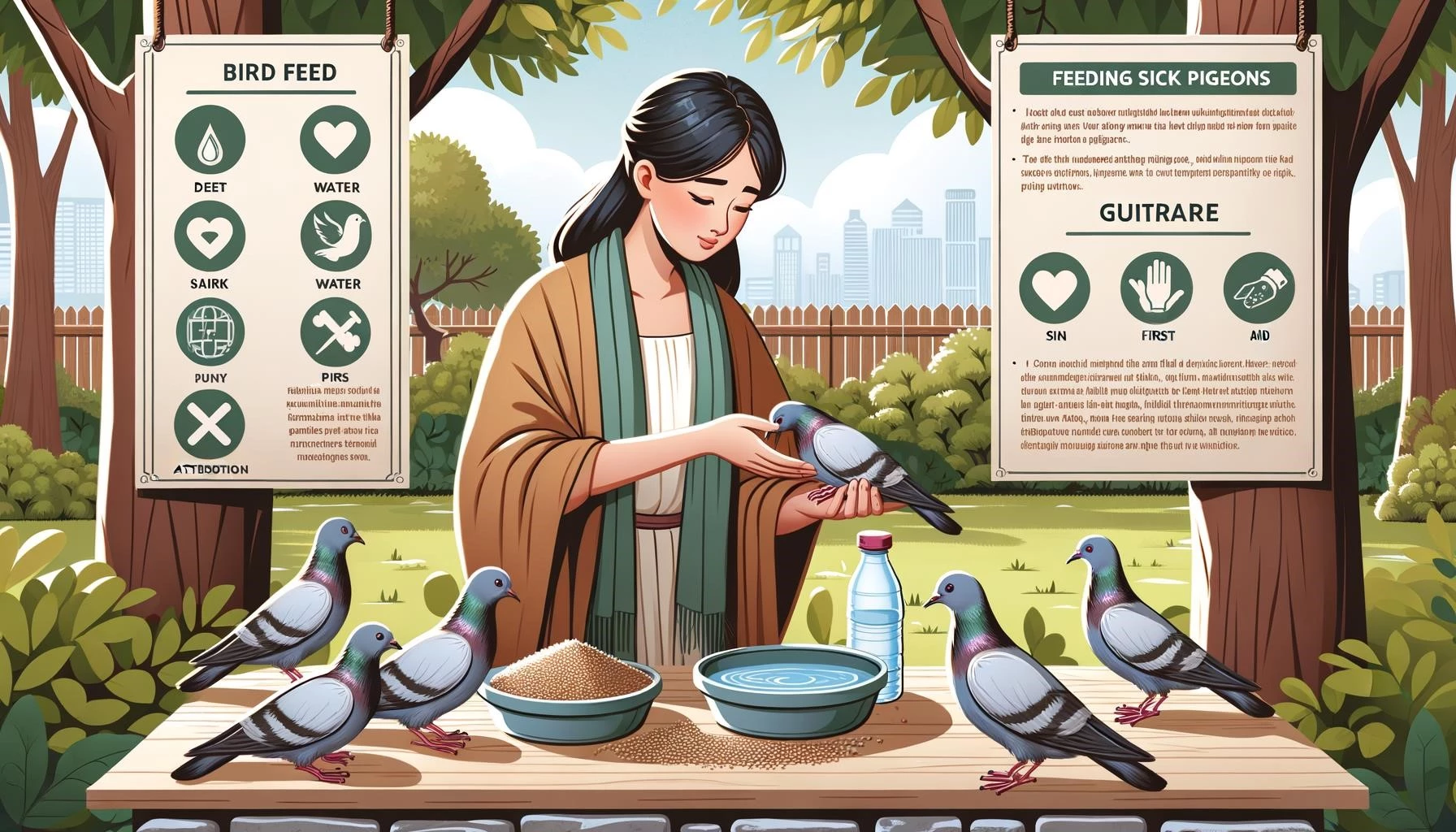Key Takeaways
– Pigeons have a diverse diet that includes seeds, grains, insects, worms, and even human food leftovers.
– Seeds and grains are an essential part of a pigeon’s diet, providing them with the necessary energy and nutrients.
– Pigeons also consume protein-rich food sources such as insects and worms, which contribute to their overall health and well-being.
– In urban environments, pigeons have learned to adapt and scavenge human food leftovers, further expanding their dietary options.
Feeding pigeons in the city can have both benefits and drawbacks. Let’s explore them in detail.
Benefits
1. Connection with Nature: Feeding pigeons can provide an opportunity to connect with nature and observe these birds up close.
2. Enjoyment: Many people find pleasure in feeding pigeons and derive satisfaction from watching them eat.
3. Reducing Aggression: Providing food for pigeons can help reduce aggression among the birds, as they won’t have to fight for limited resources.
4. Educational Value: Feeding pigeons can be a learning experience, teaching children about wildlife and their natural behaviors.
Drawbacks
1. Overpopulation: Feeding pigeons regularly can lead to an overpopulation of these birds, which can cause problems such as disease transmission and damage to buildings.
2. Mess and Unsanitary Conditions: Pigeons tend to leave droppings in areas where they are fed, which can create unsanitary conditions and damage property.
3. Dependency: Pigeons can become dependent on human-provided food and may lose the ability to forage naturally, leading to a decrease in their survival skills.
4. Attracting Pests: Feeding pigeons can also attract other pests, such as rats and mice, which can lead to infestations in urban areas.
Overall, while feeding pigeons can be a source of enjoyment and connection with nature, it is important to consider the potential drawbacks and the impact on the overall urban environment.
Recommendations for Responsible Pigeon Feeding
If you choose to feed pigeons in the city, it is crucial to do so responsibly. Here are some recommendations to ensure that your actions have a minimal negative impact:
1. Feed in Moderation: Only provide a small amount of food that the pigeons can consume in a short period. This can help prevent overpopulation and excessive waste.
2. Avoid Human Food: Stick to feeding pigeons with seeds, grains, or commercially available bird feed, rather than offering them human food leftovers. Human food can be unhealthy for pigeons and may attract other pests.
3. Clean up After Feeding: Take responsibility for cleaning up any mess left behind by the pigeons, including the removal of droppings and leftover food. Regular cleaning can help maintain cleanliness and minimize the risk of attracting pests.
4. Encourage Natural Foraging: Instead of relying solely on human-provided food, encourage pigeons to forage naturally by providing a diverse natural habitat with trees and plants that offer natural food sources.
5. Follow Local Regulations: Familiarize yourself with any local regulations or ordinances regarding feeding pigeons in public spaces. Some cities have restrictions on feeding pigeons due to the potential problems they can cause.
By following these recommendations, you can enjoy feeding pigeons while minimizing any negative impact on the urban environment and surrounding community.




